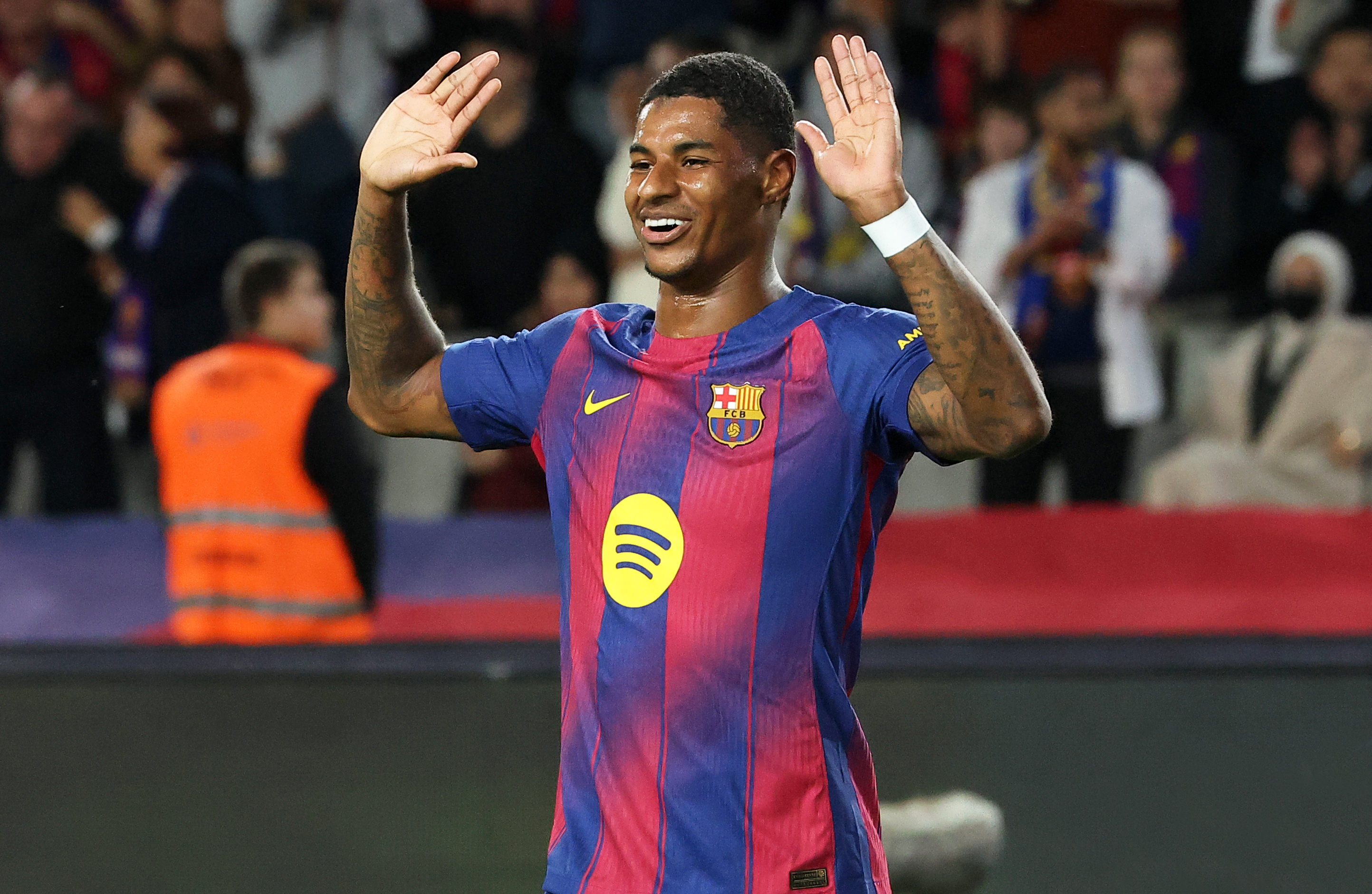Ranked! The 100 best football managers of all time
The 100 best football managers of all time, ever: it's time to honour the best tacticians, tinkermen and master motivators in the history of the game. Buckle up...
The best features, fun and footballing quizzes, straight to your inbox every week.
You are now subscribed
Your newsletter sign-up was successful
Want to add more newsletters?

Five times a week
FourFourTwo Daily
Fantastic football content straight to your inbox! From the latest transfer news, quizzes, videos, features and interviews with the biggest names in the game, plus lots more.

Once a week
...And it’s LIVE!
Sign up to our FREE live football newsletter, tracking all of the biggest games available to watch on the device of your choice. Never miss a kick-off!
Join the club
Get full access to premium articles, exclusive features and a growing list of member rewards.
10. Valeriy Lobanovskyi
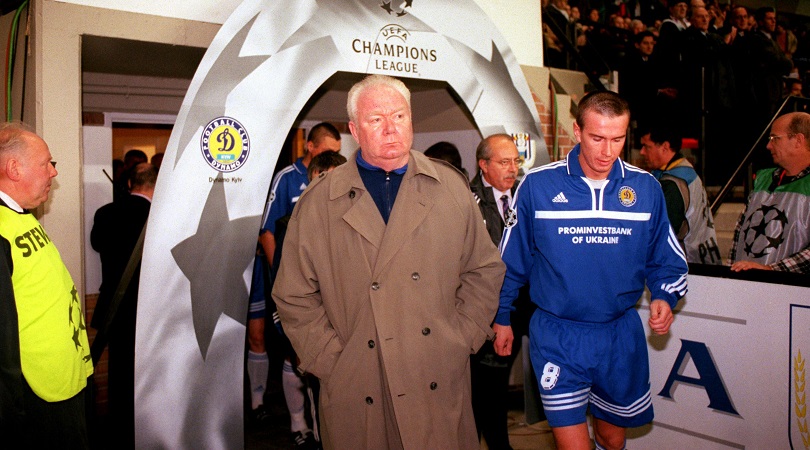
In the unlikely event that you’ve ever won an argument with Big Dave down the pub by reeling off an Opta stat, or explained the relative merits of ‘expected goals’ to your dad, then there’s only one man to thank.
In 1972 Lobanovskyi teamed up with Professor Anatoliy Zelentsov and began poring over endless statistical streams. “All life,” said Lobanovskyi, “is a number.”
Demanding ‘universality’ from his players – Oleg Blokhin, Igor Belanov and Andriy Shevchenko among them – the Ukrainian won 13 league titles (eight Soviet, five Ukrainian) and two Cup Winners’ Cups with Dynamo Kyiv. His 30 career honours make him the 20th century’s most decorated manager.
9. Ernst Happel
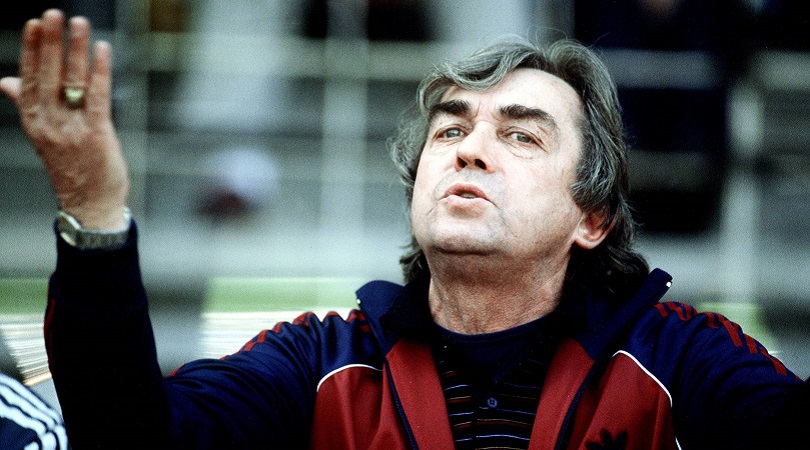
Happel was one of Rinus Michels’ big inspirations. A number of the latter’s hallmarks – a fluid 4-3-3 system, teamwork, the midfield domination – were borrowed from the Austrian, who made his name with Ajax’s arch-rivals Feyenoord.
You would struggle to find a more dominant victory than in Feyenoord’s defeat of Celtic in the 1970 European Cup Final, after which Bhoys boss Jock Stein commented, “Celtic haven’t lost to Feyenoord. I’ve lost to Happel.”
The Austrian’s second great dynasty came at Hamburg (1981-87): successive Bundesliga crowns and the 1983 European Cup.
8. Helenio Herrera
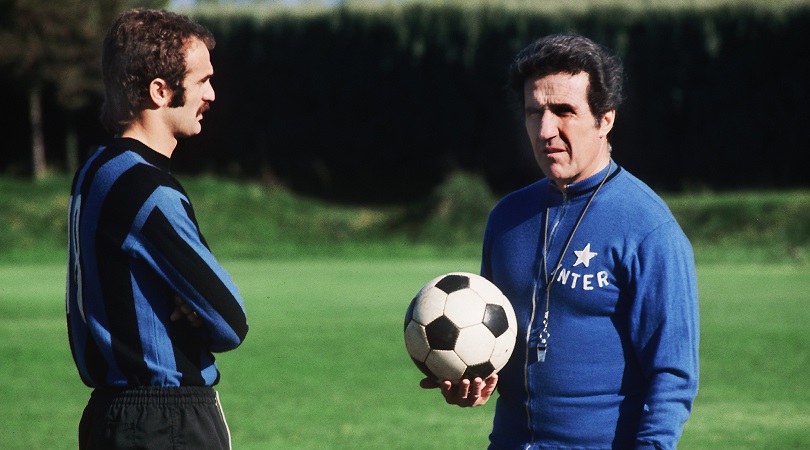
Herrera’s ultra-defensive sweeper system which inspired Italian football’s decades-long mistrust of fun will be forever synonymous with the Grande Inter side he built from 1960 to 1968; winners of three Serie A titles and the European Cup in 1964 and 1965.
The best features, fun and footballing quizzes, straight to your inbox every week.
The Argentine saw how psychology and diet could help a team, and broke scoring records in bagging consecutive La Liga titles with both Atletico Madrid and Barça in the ’50s – hardly the stats of a militant pragmatist.
“I’ve been accused of being tyrannical and completely ruthless,” he wrote. “But I merely implemented things that were later copied by every single club: hard work, perfectionism, training, diets. The problem is that most of the ones who copied me, copied me wrongly.”
7. Matt Busby
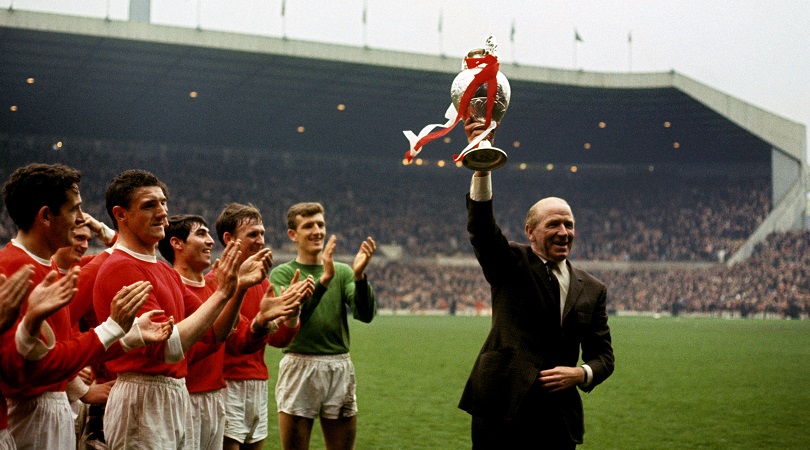
Busby’s career can be split into two eras: before and after 6 February 1958, the date of the Munich air disaster. Upon taking charge in 1945, Busby overhauled the squad and lifted the FA Cup in 1948 and league title in 1952.
United were at the end of their cycle by the latter, however. Busby was expected to sign big, but instead promoted a clutch of youth players whose story is well known by now: the ‘Busby Babes’ would celebrate two First Division titles between 1955 and 1957, with an average age of just 22.
They would have won so much more, had eight members of the squad not been killed on that fateful night in Munich. Bruised and broken-hearted, the Scot went on to win another two titles and the European Cup.
6. Arrigo Sacchi
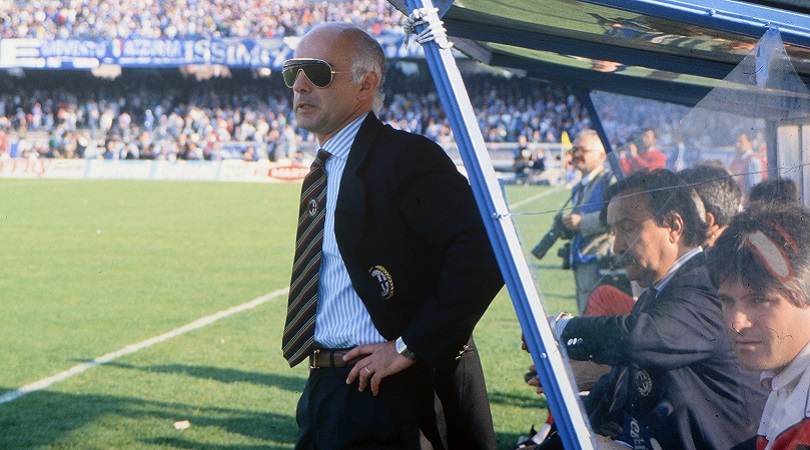
For football fans, Sacchi is possibly the most important figure in history. Not because he won trophies and influenced the likes of Pep Guardiola and Jurgen Klopp – but because he was just a shoe salesman obsessed with the game.
Sacchi set about creating his masterpiece upon taking charge of Milan in 1987. Leaning heavily on the ideas that swept Ajax to success in the 1970s, he demanded his team press from the front, hold a high defensive line, employ zonal marking and play with a flat back four – a revolution that appalled Italian traditionalists.
Sacchi had the last laugh, winning one Scudetto and back-to-back European Cups. What’s more, he made Italian football beautiful in a way that no one had ever done or has since. That’s his biggest legacy.
5. Pep Guardiola
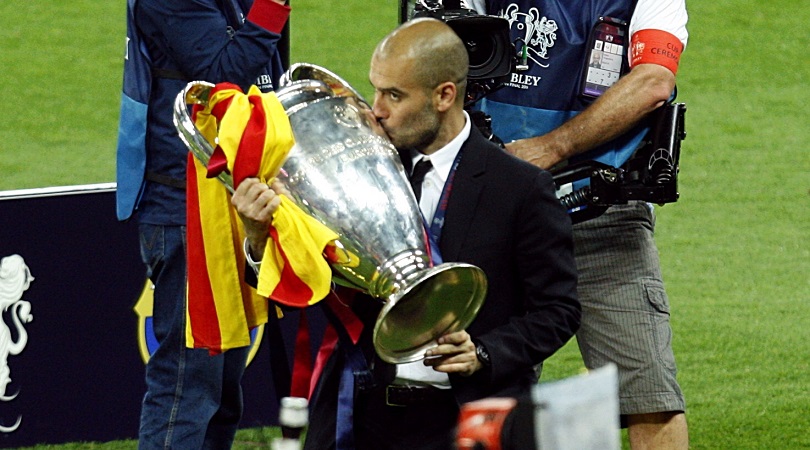
After one game of the 2008/09 season, Guardiola was feeling the pressure. Barcelona’s new coach had lost 1-0 to lowly Numancia in the La Liga opener, five days after losing 1-0 to Wisla Krakow in a dead-rubber Champions League qualifier.
By the end of that campaign, Barcelona were celebrating a treble achieved with some of the finest football ever played. In four years under their former player, Guardiola’s side won nine major trophies.
The Catalan then proceeded to take Bayern Munich to new domestic heights, before winning successive Premier League titles at Manchester City with 198 points across two seasons. He's certainly come a long way since Numancia.
4. Bill Shankly
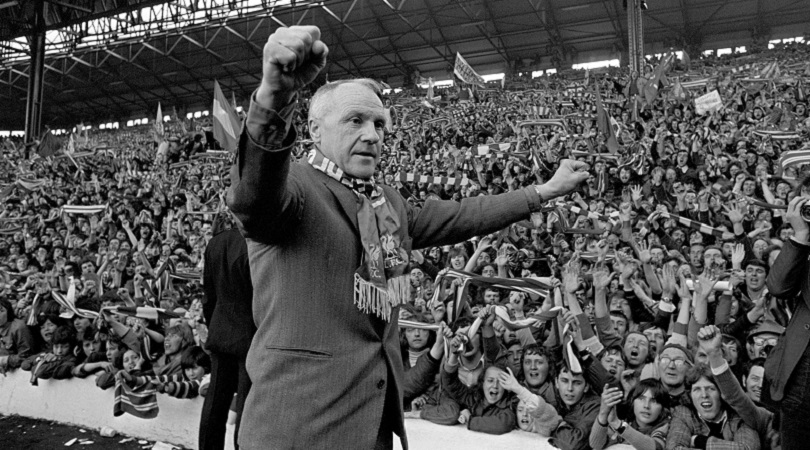
Shankly did more than build Liverpool; he formed a dynasty every bit as lasting as the city’s other great team from that era – John, Paul, George and Ringo.
The Scot transformed a dying, listing, decrepit Second Division outfit. “Liverpool is not only a club, it’s an institution,” said Shankly. “My aim is to bring the people close to the club and the team, and for them to be part of it.”
He did exactly that, and also won three First Division crowns, two FA Cups and the UEFA Cup for good measure. “He made the people happy,” reads the base of the statue of Shankly at Anfield. That was all he ever wanted.
3. Johan Cruyff
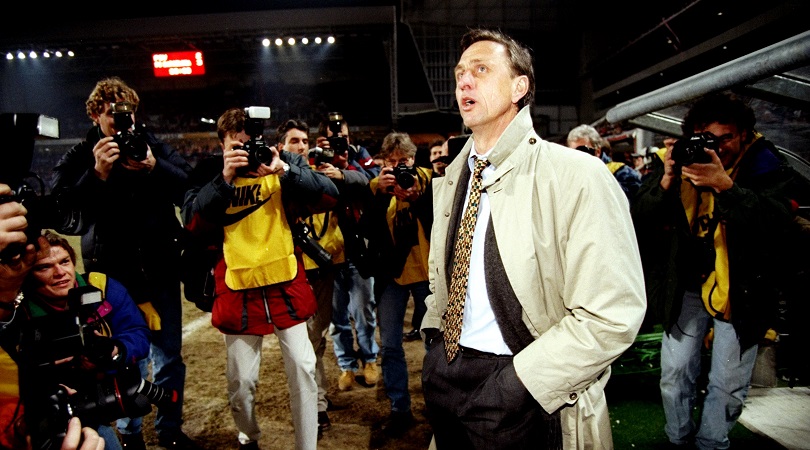
Whatever way you look at it, Jesus was a big deal. So large a debt do Barcelona owe to Hendrik Johannes Cruyff, they should adopt a similar calendar: BC, AC. Before Cruyff, After Cruyff.
When the Dutchman returned to the Camp Nou as coach in 1988, Barcelona had won 36 trophies in 89 years and were yet to lift the European Cup. In just 32 years since, los Cules have hoisted silverware 54 times, including five Champions League titles.
Each of those successes can be traced back to Cruyff, who promoted technique over physicality, overhauled La Masia, and introduced a style of play that remains sacred to this day – all while winning four La Liga titles and the club’s maiden Champions League.
2. Rinus Michels
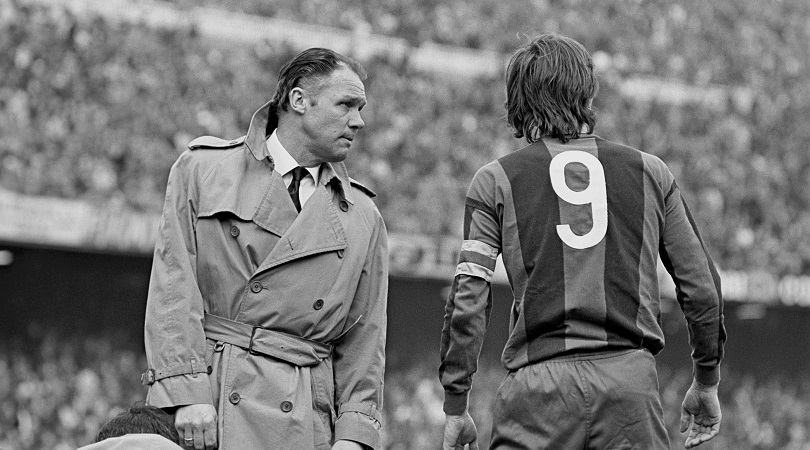
Michels won the European Cup and European Championship during his distinguished career, yet arguably his greatest legacy came from a team that won absolutely nothing at all.
Yes, the Netherlands were beaten by hosts West Germany in the 1974 World Cup Final – but they played some of the most magical football in history, influencing coaching forever. Without Michels, there would have been no Cruyff, Van Gaal nor Guardiola.
Michels was no stranger to silverware, though, having guided Ajax to four Eredivisie titles and a European Cup before taking the country’s top job.
1. Alex Ferguson
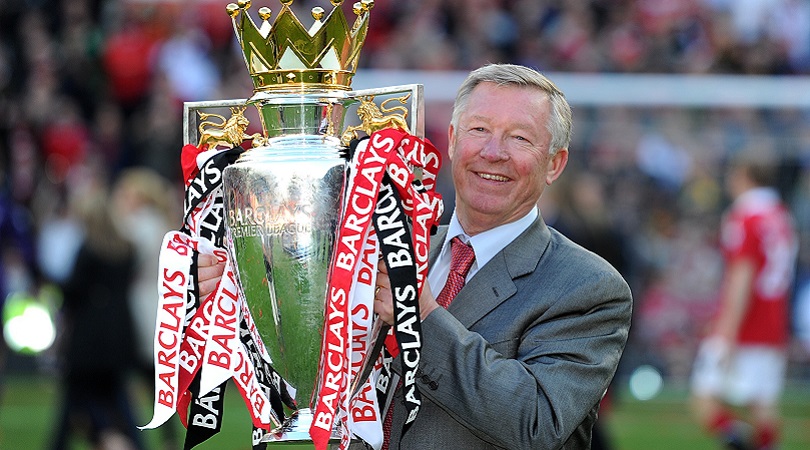
When St Mirren sacked Ferguson in 1978, an industrial tribunal ruled that he had “neither by experience nor talent, any managerial ability at all.” Few judgements in history have been proven so emphatically wrong.
Ferguson brushed off his exit from Love Street and, alongside Jim McLean at Dundee United, went on to break the Old Firm duopoly with Aberdeen, who won three league titles and the Cup Winners’ Cup (beating Bayern Munich and Real Madrid in the semis and final) under his stewardship.
The Scot moved south of the border in 1986, joining Manchester United. His first seven years brought only an FA Cup and Cup Winners’ Cup, but then came an astonishing haul of 13 Premier League titles, four FA Cups and two Champions Leagues between 1993 and 2013.
“He was a genius. It was a privilege to play for him and I consider him a friend,” said former Aberdeen striker Frank McDougall. “He’s the greatest manager of all time and probably always will be.”
Current page: The 100 best football managers of all time: 10-1
Prev Page The 100 best football managers of all time: 20-11
Chris joined FourFourTwo in 2015 and has reported from more than 20 countries, in places as varied as Ivory Coast and the Arctic Circle. He's interviewed Pele, Zlatan and Santa Claus (it's a long story), as well as covering the World Cup, AFCON and the Clasico. He previously spent 10 years as a newspaper journalist, and completed the 92 in 2017.
- Mark WhiteContent Editor
- Andrew Murray
- Joe Brewin
- James AndrewEditor
- Ed McCambridgeStaff Writer
 Join The Club
Join The Club










